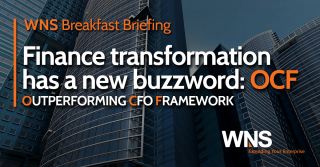Adopt-An-SME takes SME ecosystem to new heights
The Adopt-An-SME programme is ticking off all the right boxes when it comes to developing South Africa’s SME ecosystem, close to a year since its launch.
Championed by accounting firm, SME.Tax, fintech innovator SME Snapshot and consulting firm, Decusatio, the 12-month program supports a group of entrepreneurs to use technology and networks to growth their businesses.
“Our goal is to create an ecosystem of better managed small businesses. We are building reputable businesses that will be the benchmark of doing business in the SME landscape,” says Tyronne Nel, founder of SME Snapshot.
Marc Ashton, founder of Decusatio adds that one of the biggest challenges facing small businesses and Enterprise Development beneficiaries in South Africa is failure to break into the market and find those valuable first clients.
“We believe that by capacitating these SMEs with our team, we will help them elevate from just working in their businesses to working on their businesses,” says explains.
The programme provides strategic business content, tools and resources that enable SME owners to unlock the growth potential of their businesses.
“Before any work begins all business owners get put through an intensive Statutory, Regulatory and Financial appraisal. We also spend some time highlighting any deficiencies before getting into the solutions,” Ken Brown, director at SME.Tax highlights.
Tebelo Ramaboea founder of Capital Projects and Investment declares that the programme helped him turn around his struggling business.
“We have been so fortunate to get courses that are designed to upskill entrepreneurs in all spheres of business, starting from understanding the fundamentals of business 101, cash flows and sales,” Ramaboea explains.
Entrepreneurs also gain one-on-one mentoring sessions, monthly skills workshops as well as secretarial support to help get their business systems going. A resource that Andile Vilakazi, founder of Drone Eye Technology, says was invaluable for his business.
“Participating in the programme has expanded my horizon when it comes to running my business and understanding my role in it. The lessons are insightful from business ideation stage to getting a system going, where your business can continue to run even if you are not there,” Vilikazi says.
Drone Eye Technology is currently at the final stages in two different SME competitions - eKasiLabs lead by The Innovation HUB and Gauteng Accelerator Programme as well as the ‘Driving Force for Change’ support initiative by the Department of Environment, Forestry and Fisheries - the award ceremonies for both will take place on the 26th of November 2021.
“I strongly believe that the Adopt-An-SME programme played a vital part in pivoting Drone Eye Technology to where we are now. The knowledge and technology we have access to helps us focus on growing our business and not just running it,” Vilakazi exclaims.
Corporates looking to support a SME can sign up on the website SME. Tax or send an email to This email address is being protected from spambots. You need JavaScript enabled to view it. , This email address is being protected from spambots. You need JavaScript enabled to view it. or to This email address is being protected from spambots. You need JavaScript enabled to view it.
Curious about the profitability of your competitors?
As an entrepreneur, there is an inherent curiosity about the financial performance of industry peers. Is your sector expanding or contracting? Are your peers seeing growth? Short of interrogating financial data of listed businesses, there are limited tools available to entrepreneurs to access this data in an affordable manner.
This is the key opportunity that the team from SME Snapshot are tackling.
“One of the major issues facing the South African economy is the lack of real-time data, especially when it comes to the SME sector,” says Tyronne Nel, Director at SME Snapshot. Nel point out that this lack of real-time data impacts the entire SME ecosystem including lenders, incubators, accelerators and business owners.
“Think about the construction sector for a moment – we know there has been a significant increase in the number of projects out to tender and we know that SANRAL is planning to issue over R40bn in road-building tenders over the next 3 years. Yet I challenge you to find a lender who is prepared to go and fund SMEs or contractors in this construction sector at the moment – the lenders are incredibly risk averse because the entire construction sector is perceived to be high risk from a lenders perspective.”
The SME Snapshot solution
In response to this lack of data in the sector, the SME Snapshot tool was developed to begin capturing real-time data around each of the sectors.
“Initially, we started off using the Snapshot tool to support our accounting clients,” says SME.Tax Master Franchisor Ken Brown adding: “Snapshot provided our clients with an interactive dashboard showing them all the critical numbers that would be important to lenders – all we have to do is upload the accounting data and then track the key metrics.”
For clients who are not using an automated accounting system, they can upload their trial balances manually.
Some of the key features of Snapshot include:
- Aggregated sector data allowing businesses to compare their financial performance against peers through the SME Index ™
- Management of deadlines like VAT, Income Tax, Annual Returns and Compensation Commissioner
- Key metrics like profitability and margins can be tracked
As the dataset began to grow, Nel and Brown realized they had a powerful asset on their hands. The tool is now being used by a variety of different players in the SME ecosystem including lenders and incubators and they are presently piloting a project with the Innovation Hub in Pretoria.
“The SME Index ™ allows organisations to then compare their financial metrics against industry and sector peers and spot downturns or improvements in real-time,” says Nel. With the South African SME ecosystem devoid of real-time data, SME Snapshot provides a powerful solution for all role players and is now eyeing international expansion.
No financials, no finance
South African entrepreneurs looking to access finance to grow their business, won’t make much progress if their financials are not in order.
This is the advice shared by Ken Brown, the Master Franchisor at SME.Tax - one of South Africa’s most innovative accounting franchise groups.
“We see it all the time, high-potential businesses can’t access finance for growth because they can’t provide up-to-date financial records,” says Brown.
This is often driven by the fact that many small businesses neglect the accounting and bookkeeping functions as they focus on securing new business and fulfilling orders. Brown points out that many SMEs win a contract at a corporate and then can’t get on to the vendor system because they haven’t kept their SARS or CIPC submissions up-to-date.
“While technology has driven a lot of innovation and the development of new tools, bookkeeping or accounting at its core hasn’t really changed much in terms of its purpose, which is to provide an accurate financial statement of a business at a point in time,” says Brown.
When it comes to applying for finance, here are some common mistakes that entrepreneurs make:
- If your returns for CIPC, SARS and even B-BBEE certificates are not kept up-to-date, you will find it very hard to get onto vendor systems. Entrepreneurs need a system such as the SME Snapshot tool or regular reminders from their bookkeeper or accountant to keep these current so as not to miss out on orders or finance
- One of the real innovations in the world of fintech is the ability to use technology to access finance quickly – often inside of 72 hours – but many of these new online systems require you to upload your current financials into secure databases. If you don’t have up-to-date financials stored on a recognized financial platform such as Xero or Sage, these automated systems cannot apply their credit scoring systems and disburse funds
- Lenders want to know that you have fiscal discipline and ultimately positive cashflow. An immediate red flag for lenders is a bank statement which shows the owner or entrepreneur making regular cash withdrawals and using the company bank account for lifestyle expenses. A good bookkeeper or accountant will help instill this discipline in your processes, immediately making you more attractive and lower risk in the eyes of a lender
- If you are looking to access venture capital or bring in a new investor, these parties are going to want to know what they are investing in. Being able to present financials and realistic forecasts will be a critical part of your pitch
- As part of their credit-scoring metrics, lenders have a relatively good idea around profit margins in various industries. Financials which have been hurriedly put together and reflect margins which are either wildly high or unsustainably low, will both be flagged during credit vetting processes
“In the quest to find new business, entrepreneurs often neglect the financial administration side of their businesses and this is unfortunate as they could very easily be accessing growth finance, if they just put the right processes in place or partnered with teams who can do this for them,” concludes Brown.
Get ready for your ACCA exams: How to Tackle your ACCA Advanced Taxation UK exam
At a recent online conference, a team of ACCA experts who are involved in reviewing and marking ACCA exams offered their insights on the Applied Skills, Strategic Professional and Options (UK tax) exams. The conference provided a unique opportunity for Approved Learning Partners, like IBTC, tutors and other strategic partners to come together, network, and gain practical insights into ACCA’s examinations.
During the conference they reviewed the 2018 September and December exams to provide students with direction and guidance when writing their exams this year. Here is what they had to say about The Advanced Taxation- UK
According to the examiners, there are a few changes in the ATX UK subject. The technical changes you need to be on the lookout for are the following:
- Deemed domicile changes for personal taxes (IT, CGT and IHT)
- Changes to corporate loss relief
- Income tax implications of lump sum payments
- Changes to SSE conditions
Apart from these changes, the examiners found that there are several areas that students struggle in and definitely need to improve on.
"Candidates need to consider the scenario given before they start writing their answer and not simply state general tax rules. A lot of students make this mistake. Students need to understand that each client has their own set of circumstances, which the tax rules must be applied to. Each scenario is unique and must be treated as such," said the examiners.
The examiners gave the following advice:
- Slow down
- Note initial thoughts and plan
- Think, then write
- Think, then calculate
- Clearly address the requirements and be specific
- Provide clear, short and concise explanations
- Avoid irrelevant explanations/calculations
- It is suggested that students spend 1.8 min per mark
About International Business Training College
IBTC is a registered course provider delivering classroom tuition and distance learning courses for internationally recognised professional qualifications, such as CIMA, ACCA, CAT, ICB and CFA - offering a combination of distance learning and classroom courses designed to prepare students for their professional examinations.
Operating from Cape Town since 1995, IBTC provides classroom courses in major cities around South Africa and a comprehensive Home Study programme supported by experienced international tutors.
All our courses include a complete set of internationally acclaimed study material which has been developed to ensure that students have maximum control over what they learn, the way they learn it, and the pace at which they work.
IBTC also works closely with a variety of professional institutions to support skills training and education. We believe in providing local students with access to international qualifications, bringing you closer to your professional goals and success in the workplace.
IBTC’s role is to support students in the accounting and business management field in successfully completing their exams.
Courses include:
- CIMA - Certificate, Operational, Managerial, Gateway Assessment, and Strategic Level
- ACCA - Fundamental & Professional Level
- FIA - Introductory, Intermediate, Diploma and Certified Accounting Technician Level
- CFA - Level 1 – 3
- ICB ACCOUNTING - Foundation, Intermediate, Upper Intermediate & Advanced Level
- ICB ADMINISTRATION - Foundation, Intermediate & Advanced Level
The founder's story matters: Here is the story of IBTC and CEO Nikki Maritz
Over the last year we've been focusing a lot on growing the company and growing as leaders. One of the things I've learnt in the process is that the founder's story matters. The story of our past informs our future. Where we come from, says a lot about who we are and where we're going. So here is my story. The story of the origin of IBTC.
For this story, I must go right back to the start.
Leaders make more leaders
My first real job was at a private distance learning college. I stayed there for 12 years and had no plans to leave. It was a great place to learn and grow. One of my managers changed the course of my life. He was generous with his time and knowledge and gave me an opportunity to learn about business, strategy, finance, product management and people management. From him I learnt the value of reading business books and studying other companies. Under him, three of the four senior managers who reported to him went on to start their own businesses. In retrospect, he was a 'king maker' of sorts. Today I know that great leaders make more leaders.
The truth is that I didn't set out to become the CEO of my own college - it wasn't even in my frame of reference. But someone came along who believed in me and wanted the best for me - and in the process enabled me to achieve what I didn't even have the courage to dream.
Values matter
In 2008 my manager and I independently decided to leave the college after it changed hands. We felt the new owners didn't put the students first and blindly pursued money. We were more interested in adding value to people's lives and wanted to leave people richer because they bought from us, not poorer. Then an opportunity came along to buy a small tuition provider operating from Hout Bay and we felt it could be a place where we can live out our values. We raised some capital (which was an extremely stressful time) and bought this small college. There were only 2 permanent staff members (the owners) and a temp. We inherited the temp. Six months after we took ownership, Rob passed away. It was a huge shock to lose someone so unexpectedly and a daunting task that lay ahead of me. I felt I still had so much to learn, but also knew that I had learnt enough. So, I picked up the reigns, moved the company to Cape Town and started applying everything I knew.
Now it's 11 years later and we've grown tenfold. We have campuses in Cape Town Sandton and Pretoria and we've expanded our product range to include exclusive online classes. I really feel we've grown into a remarkable company with remarkable people and that the best is yet to come.
Pay it forward
The moral of the story is that someone believed in me and changed the course of my life. IBTC is my chance to pay it forward. It's a company where we pursue meaning over money - that means putting the student and their success first. It's a place where we recognise that people buy a promise from us and we must deliver on that promise. This holds true for members of our staff and our students. Everybody buys into the promise of IBTC - a promise of learning and growth, a promise of being taken care of and a promise of people believing in you and being generous with their time and knowledge.
IBTC aims to fulfil its promise to all stakeholders (staff first), of being a place where we build relationships, we grow, we deliver results and we give people remarkable moments.
Companies are outsourcing their financial operations, here’s why it’s a good idea.
More and more companies are re-thinking their executive teams and outsourcing the financial aspect of their operations. In this modern age of dynamic and complex business markets replete with endless streams of new technology, automation and digitalisation, it is nearly impossible to stay abreast. Mounting operating expenses and inefficient labour in this financial climate are also not helping businesses achieve their envisaged growth. Addressing these challenges from an operational and strategic perspective should not be taken lightly and certainly requires expert input. Considering an outsourced option for the financial operations of your company can be suitably beneficial.
Handre Lourens, business rescue practitioner and consultant at Hobbs Sinclair says, “The question you have to ask yourself is, does your business merit a full-time financial manager or financial director, or are you best placed to outsource this crucial function?” The trend is with outsourcing, and here’s why.
Outsourcing
Outsourcing your financial function and operations brings the advantage of securing a practised professional tailored to the requirements of your business – when you need it, how you need it – without the burden of employing someone full-time at the high cost of a permanent, qualified professional.
Strategic decision-making and up-scaling
An outsourced financial go-to person will assist with business growth by managing your working capital cycle, cash flow, strategic decision-making and mitigation of risks, critical in the scale-up phase of any business.
Monitoring your business
Experts in financial management, with diversified skill-sets and knowledge, will implement systems to mitigate risk and devise management accounts to monitor your business. This will enable better strategic decisions for growing revenue and customer base, cutting costs while increasing productivity and efficiency.
Business plans
Growing your business requires financial backing. If you need bank finance to develop your business, a bank will be expecting an in-depth forecast and detailed business plan. Expert input in this regard is extremely valuable to your application.
Tax planning
If your business is booming and you have secured a sustainable market share, your customers are happy and your bottom line is smiling, the next phase of efficient tax planning is critical. Lourens suggests, “Before the taxman comes knocking on your door, get the experts in to ensure your tax planning is as efficient as possible and, most importantly, to make sure you have made sufficient cash flow provisions.”
The rewards
At the end of an era, when it’s time to sell your business, outsourced tax professionals will efficiently evaluate your business to ensure you receive the capital you deserve for all your hard work, sweat and tears.
Unlock the full potential of your finance department with OCF
Is your finance department ready to manage unpredictable change?
Financial transformation has a new buzzword – OCF – the outperforming CFO Framework that enables finance organisations striving to focus more effort into driving business outcomes.
WNS, a leading global business process management company, will be introducing this cutting-edge framework, designed to manage and handle unpredictable changes, at two events aimed at CFOs and finance leaders in Cape Town on the 21st of August 2018, followed up by an event in Johannesburg on the 23rd of August 2018.
Targeting outperforming CFOs
These two exclusive events will provide valuable insights to CFOs and finance leaders into how they can improve shareholder value by revealing market insights and a competitor landscape assessment that will demonstrate the “Art of Possibilities” in enhancing working capital management.
The event will also focus on how to build an agile business model by analysing future readiness of the industry, taking into account multiple business disruptors and readiness levers. Last, but not least, it will explore how to build a best-in-class finance organisation through a benchmarking and maturity assessment for defining the transformation roadmap to enhancing business outcomes of the finance organisation.
Challenging the norm
WNS offers business value to 300+ global clients by combining operational excellence with deep domain expertise and is ideally positioned to help clients assist and transform their finance and accounting (F&A) function through their proprietary Outperforming CFO Framework (OCF). Their Proprietary OCF tool defies the traditional model of benchmarking with maturity assessments that encompass the overall end-to-end finance environment. It is executed by experts spanning across domains to analyse, build and implement a robust transformation roadmap to achieve optimal results with minimal effort from an organisation’s day-to-day resources. The OCF tool includes over 250 best practices of F&A processes and has successfully served multinationals by implementing F&A transformations and operations management in partnership with leading market analysts for benchmarking performance.
Delivering real value
The two events will include finance domain leaders sharing their experience with OCF and will reveal how they reduced manual processing through automation by 40%, optimised cost with automation, digitisation and process re-engineering by 33% and achieved an incremental free cash flow of $53 million. For more information about the event and to book your complimentary seat please visit: www.wnsevents.co.za/ocf
About WNS
WNS (Holdings) Limited (NYSE: WNS) is a leading global business process management company. WNS offers business value to 300+ global clients by combining operational excellence with deep domain expertise in key industry verticals including Travel, Insurance, Banking and Financial Services, Manufacturing, Retail and Consumer Packaged Goods, Shipping and Logistics, Healthcare and Utilities. WNS delivers an entire spectrum of business process management services such as finance and accounting, customer care, technology solutions, research and analytics and industry specific back office and front office processes. As of March 31, 2017, WNS had 33,968 professionals across 48 delivery centres worldwide including China, Costa Rica, India, Philippines, Poland, Romania, South Africa, Sri Lanka, Turkey, United Kingdom and the United States. For more information, visit www.wns.com.
About WNS South Africa
WNS Global Services SA (Pty) Ltd has been in operation since 2003 and has built a reputation as the industry-leading Business Process Outsourcing (BPO) Company in South Africa, with a growing footprint into Africa. We are a strategic partner for delivering a full range of basic to complex business processes from our eight delivery centres across South Africa, employing 4 000+ people. www.wns.co.za
Editorial contacts
WNS SA
Taryn Weldon
Senior Group Manager: Marketing (+27) 21 819 6283
This email address is being protected from spambots. You need JavaScript enabled to view it.
South Africa positioned in Top 10 Global Finance and Accounting Outsourcing Destinations
South Africa has clinched 8th place as a top global offshore location for finance and accounting outsourcing (FAO) further augmenting its position as the top Offshoring Destination of 2016 by the Global Sourcing Association. This was one of the key findings in the 2017-2018 Global FAO Market Intelligence Survey published by research firm, Knowledge Executive.
A total of 126 large enterprises in Australia, South Africa, the United Kingdom and the United States participated in the survey and disclosed their finance and accounting (F&A) investment plans; pain points and challenges; skills, technology and service provider requirements; and favourite offshore locations.
South Africa’s significant rise is due in part to its high-end, specialised F&A skills and its ability to deploy the latest finance and accounting technology such as Robotic Process Automation (RPA) and Artificial Intelligence (AI).
Robotic Process Automation (RPA)
The survey noted that RPA is being utilised to optimise and push through repetitive F&A processes. While there is uncertainty around RPA, 12% of respondents indicated that they would use RPA to replace mundane, repetitive F&A tasks while 25% will use RPA to automate entire end-to-end F&A processes. When looking at general technology deployment, up to 16% of respondents said that they would boost the deployment of RPA in the next year.
Deloitte says RPA is already saving companies substantial amounts of time and money. “In some instances, we have found that RPA is 15 times more efficient than humans and offers a 15% to 90% cost reduction opportunity depending on the characteristics of the function to which it is being applied,” says Francois Burger, Finance & Accounting Outsourcing Leader at Deloitte who was one of the associate sponsors of the survey. “However RPA is not a ‘once-off’ technology implementation but a capability that needs to be continuously managed. It is about redeploying human talent and letting the robots do what they do so well, which can free up finance talent to address activities that are less repetitive and add more value.
”Robotics, says WNS, offers more accuracy at faster speeds; companies can scale with more volume-based transactions and with little increase in cost. “We foresee more companies investing in robotics and using it as a key differentiator for routine-based tasks. But you need a short to medium RPA plan in order to be effective,” says Alicia Kistan, Senior General Manager: Shared Services at WNS that was also an associate sponsor of the survey.
“Technology is and must, be seen as an enabler, and there are so many repetitive and transactional-based F&A functions that can be automated. These include invoice processing, accounts receivables, journals and general ledgers. This can evolve into business analytics that are rules based and generate better insights and accurate outputs.” Accounting-as-a-Service (AaaS)The survey also revealed that advancements in Business-Process-as-a-Service (BPaaS) and Accounting-as-a-Service (AaaS) would drive greater outsourcing opportunities and investment plans. “Companies are looking at innovation and how to utilise new technologies and cloud-based services from their F&A providers to drive efficiencies and quality of service. As-a-service and subscription-based F&A solutions are rapidly gaining momentum,” says Deloitte.
WNS concurs, saying that the big theme is around transformation. “CFO’s are looking for value creations from their outsourced partners. They want to streamline F&A services by investing in technology to make them more seamless and efficient. Ultimately, the focus is on improving productivity and unlocking business insights through data analytics and incorporating the use of intelligent tools or robots.”
For more insights on Robotics Process Automation: https://www.wns.co.za/insights/articles/articledetail/361/doing-the-robot








